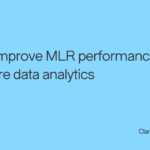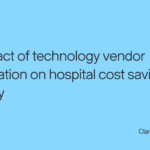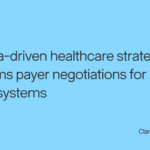This week, October 11-17, is National Case Management Week 2020 (NCMW2020). To all the amazing case managers: your hard work and dedication to patients deserve to be formally recognized. Thank you for your contributions and tiresome work assessing, planning, facilitating, care coordinating, evaluating, and advocating on behalf of patients and their families to get every one of them the right care and services. Case management has been shown to increase patient satisfaction, improve health outcomes, and reduce healthcare utilization. In the quest for the Triple Aim, case managers are fundamental, and the need for their services is growing. Yet, their work is not without sacrifice. Case managers face an uphill battle and mountain of administrative burden, increasing their likelihood of becoming dissatisfied and burnt out. How can we make case management programs more accessible and sustainable? A comprehensive case management assessment spans many different topics, including evaluating a patient’s medical, behavioral, social, and emotional needs, as well as their functional status and goals. With a dozen separate domains within the Social Determinants of Health (SDoH) evaluation alone, completing a comprehensive analysis can be a lengthy and tedious process for the clinician and the patient. However, assessments are critical to identifying care gaps and barriers; the findings of these assessments are used to develop patient-centered goals and coordinate interventions that address identified needs. Completing a comprehensive case management assessment is not easy. Case managers may experience patients who are reluctant to disclose patient health information (PHI) and SDoH information. Patients may, understandably, have privacy concerns or be skeptical of the questions being asked. While the importance of identifying and addressing social needs is well documented, these areas are even more challenging to assess due to their personal and sensitive nature. Commonly, assessments take place after a recent hospitalization or while a patient is recovering from a severe illness. Tasks like recalling current medications or medical history may seem like an innocuous request, but for many patients and their caregivers, it can be overwhelming. They may not have the stamina for a lengthy interview. Patient omissions and recall limitations, and differences in interpretation can limit the accuracy of an assessment. Assessing these topics takes time, sensitivity, and trust. Patients need to feel safe sharing their concerns and vulnerabilities without shame or criticism. It requires a clinician who is skilled in identifying care needs and establishing relationships with other providers who can effectively address those needs. A manageable caseload should factor in the number of patients and their acuity. Today, case management teams are challenged by increasing caseloads and assignments, higher acuity needs, and urgent response times. To ease the burden, we can start by making case managers more effective and efficient at assessments so they can dedicate their time to addressing patient needs. Objective data such as previous utilization, diagnoses, or medications should be gathered from data sources and verified with the patient rather than expecting the patient to provide this information. This would allow the patient interview to focus more on developing a relationship and exploring the patient’s goals and care needs. Analytics can highlight which areas are higher-priority or need more attention. The same way that vital signs obtained during a physical assessment, such as a low O2 sat or an increased respiratory rate indicate a need for the careful assessment of a patient’s respiratory status, analytics about a patient’s prior care journey can clue case managers into the medical, behavioral, social, or emotional domains that need the most consideration. Similar to how patients are triaged in the ER based on their medical history and severity, case managers need to triage patients based on their acuity and specific needs. While a patient with a complex medical condition may need a registered nurse, a patient with housing instability may need a social worker, and a patient with a complex medication history may need a pharmacist’s review. Assigning care based on needs is more effective and promotes continuity of care while minimizing inefficiencies that occur with case reassignments and transitions. Faster assessment of patients can close care gaps faster and prevent potentially avoidable hospitalization or care. Utilizing advanced analytics software, like Clarify Populations, which draws upon patient-level claims, clinical, prescription, and SDoH data to proactively identify a patient’s risk and match them to programs that are best suited to meet their needs, can inform case managers who are often starting assessments in the dark. It can provide a starting point on which to build a comprehensive assessment and plan of care. While technology and analytics do not replace the need for a clinician assessment, they can provide actionable insights and direction that can inform interventions, including patient education, care coordination, advocacy, and access to resources. Laura Yousenasna, RN-BC, CCM, has been a Registered Nurse for 18 years. She is also a Certified Case Manager and is board certified in Nursing Informatics. She joined Clarify Health in 2020 as a Clinical Informatics Manager. Previously, she spent 10+ years in Case Management.
It starts with the assessment process.
Case managers are often swimming against the tide.
Case managers are stretched too thin.
Advanced analytics can help.
About the author.
- Author Details





